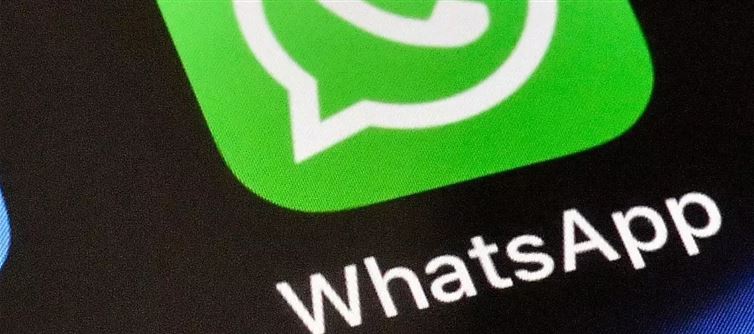
Iranian state media on tuesday afternoon called on the people of iran to uninstall whatsapp from their smartphones, claiming that the software collected user data and sent it to israel without providing any concrete proof.
WhatsApp expressed its concerns in a statement, saying it was "concerned these false reports will be an excuse for our services to be blocked at a time when people need them most." Because whatsapp employs end-to-end encryption, a message cannot be read by a service provider in the middle.
"We do not track your precise location, we don't keep logs of who everyone is messaging and we do not track the personal messages people are sending one another," it stated. "We do not provide bulk information to any government."
When messages are encrypted end-to-end, they are jumbled and only the sender and recipient may see them. All that will be visible to anyone else who intercepts the communication is a jumble that requires the key to decipher.
According to Gregory Falco, a cybersecurity specialist and assistant professor of engineering at Cornell University, it has been shown that it is feasible to decipher whatsapp metadata that is not encrypted.
"So you can understand things about how people are using the app and that's been a consistent issue where people have not been interested in engaging with whatsapp for that (reason)," he explained.
Falco said that data centers holding whatsapp data from a certain nation are not always situated in that nation, which raises another concern regarding data sovereignty. For example, it is quite possible that WhatsApp's Iranian data is not stored in Iran.
"Countries must store and process their data domestically using their own methods. Because trusting the global network of data infrastructure is becoming more and more difficult," he remarked.
Facebook and Instagram's parent company, Meta Platforms, is the owner of WhatsApp.
Although iran has long prohibited access to a number of social media sites, many Iranians still use virtual private networks, or VPNs, and proxies to get around the country's restrictions. During widespread demonstrations against the government in 2022 over the death of a woman detained by the nation's morality police, it banned google Play and WhatsApp. Late last year, the prohibition was lifted.
Aside from instagram and Telegram, whatsapp was one of the most widely used messaging apps in Iran.
WhatsApp expressed its concerns in a statement, saying it was "concerned these false reports will be an excuse for our services to be blocked at a time when people need them most." Because whatsapp employs end-to-end encryption, a message cannot be read by a service provider in the middle.
"We do not track your precise location, we don't keep logs of who everyone is messaging and we do not track the personal messages people are sending one another," it stated. "We do not provide bulk information to any government."
When messages are encrypted end-to-end, they are jumbled and only the sender and recipient may see them. All that will be visible to anyone else who intercepts the communication is a jumble that requires the key to decipher.
According to Gregory Falco, a cybersecurity specialist and assistant professor of engineering at Cornell University, it has been shown that it is feasible to decipher whatsapp metadata that is not encrypted.
"So you can understand things about how people are using the app and that's been a consistent issue where people have not been interested in engaging with whatsapp for that (reason)," he explained.
Falco said that data centers holding whatsapp data from a certain nation are not always situated in that nation, which raises another concern regarding data sovereignty. For example, it is quite possible that WhatsApp's Iranian data is not stored in Iran.
"Countries must store and process their data domestically using their own methods. Because trusting the global network of data infrastructure is becoming more and more difficult," he remarked.
Facebook and Instagram's parent company, Meta Platforms, is the owner of WhatsApp.
Although iran has long prohibited access to a number of social media sites, many Iranians still use virtual private networks, or VPNs, and proxies to get around the country's restrictions. During widespread demonstrations against the government in 2022 over the death of a woman detained by the nation's morality police, it banned google Play and WhatsApp. Late last year, the prohibition was lifted.
Aside from instagram and Telegram, whatsapp was one of the most widely used messaging apps in Iran.




 click and follow Indiaherald WhatsApp channel
click and follow Indiaherald WhatsApp channel